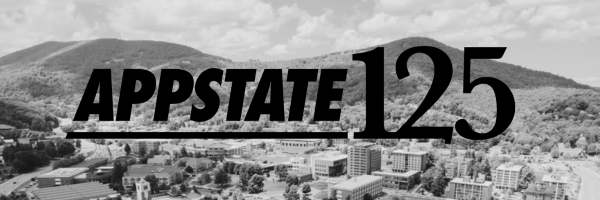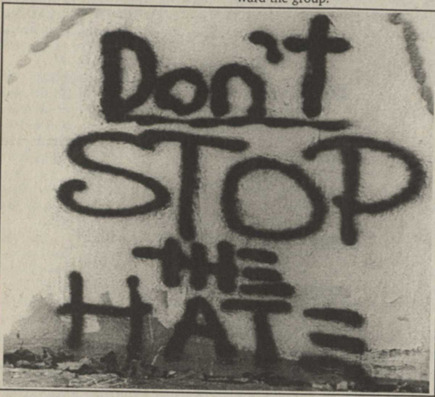Globalization and Growth: 1980-1999
Connecting with International Issues
The Anti-Apartheid Act of 1986 was being debated in the United States Senate, with President Ronald Reagan opposing the bill. While the debate continued, some universities took action by divesting from purchasing South African goods. Forty-six Appalachian State students, seven of whom were Black Student Association members sponsored by the NAACP, traveled to Washington, DC, to urge Congress to override Reagan’s veto of the bill. Demonstrations continued on campus, with students presenting the administration with a petition for Appalachian to divest from the use of South African goods.
Revamping the Core Curriculum
In 1987, a Task Force on Educational Goals was formed to review the undergraduate core curriculum to ensure students were prepared for the increasingly global society. One goal required students to develop "an understanding of the world's diversity of cultural and national
experiences, identities and values."
Catalyst for National Exposure
In 1989, football coach Jerry Moore began his first season as coach of the Mountaineer football team. He won against the Gardner-Webb Bulldogs 43 to 7 in his first game. Throughout his Appalachian State football career, he led the Mountaineers to ten Southern Conference Championships and three consecutive NCAA Division I Football Championship Subdivision wins from 2005-2007.
Creating Momentum and a Speedbump
In 1990, the Sexual Awareness Group at Appalachian (SAGA) was formed as “a support/services group dealing with issues of all sexual orientations.” The group underwent several name changes, including Bisexual, Gays, Lesbians, and Allies Associated for Diversity (B-GLAAD), then back to SAGA with the acronym spelling the Sexuality and Gender Alliance Group.
Appalachian State established the first sustainable development program in the country in 1991. The Sustainable Development program focused on the principle of community engagement: "Outreach assists communities with their initiatives in sustainable agriculture and land use, promoting Appalachian traditions and culture, and localized community development efforts."
Messages of hate were graffitied in the Rivers Street Tunnel in 1995. Campus organization Bisexual, Gays, Lesbians, and Allies Associated for Diversity (B-GLAAD) sponsored a National Coming Out Day celebration on October 10-11 and painted over the hate messages. The tunnel was re-vandalized on October 17, and B-GLAAD repainted the tunnel on October 19.
In 1996, the Equity Office was established after reorganizing the Office of Women's Concerns (OWC). The OWC's mission was to offer university personnel and students a neutral and confidential place to start resolving problems involving alleged harassment or discrimination.








